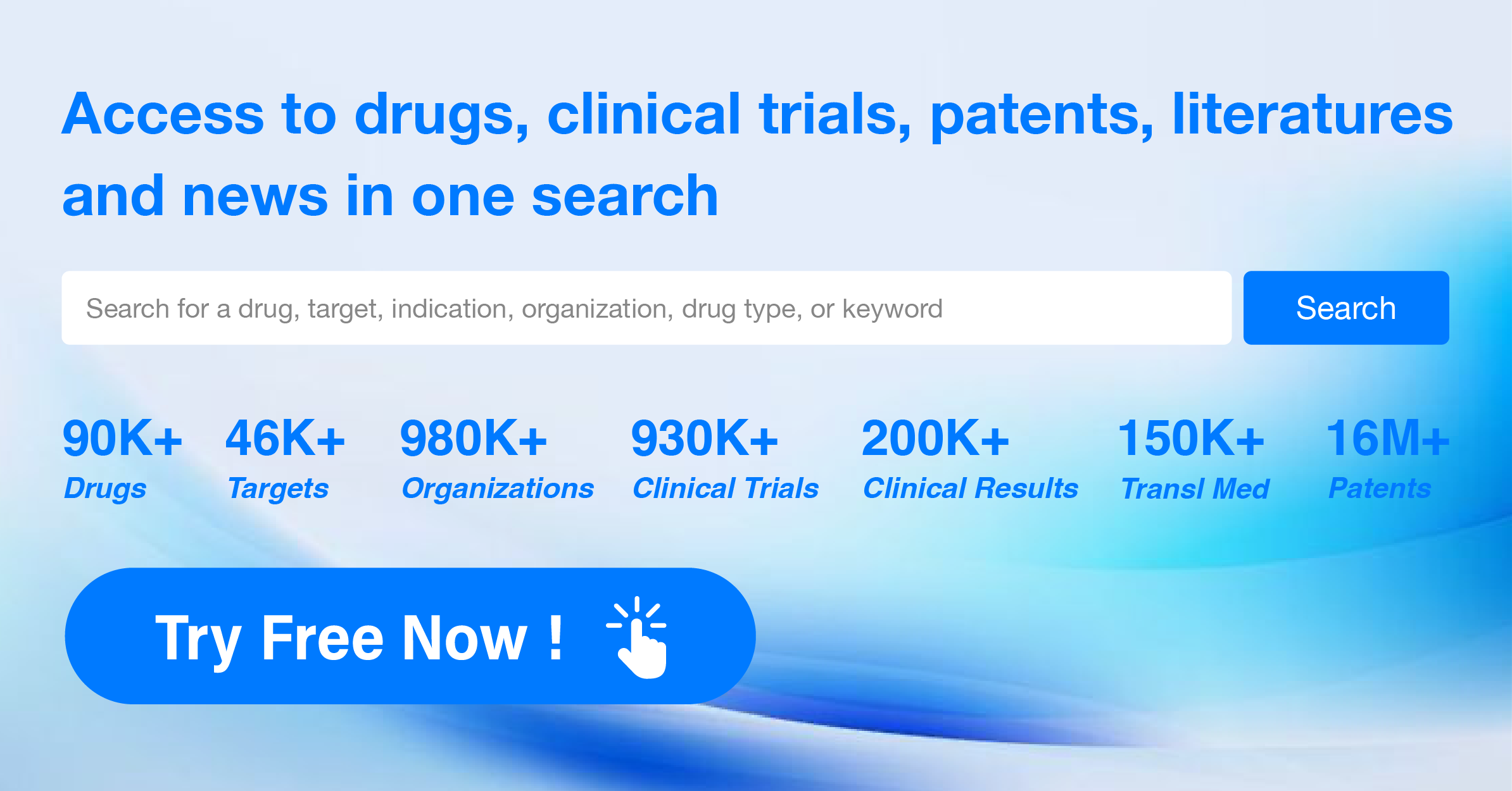Pharma Frontiers: Daily Digest of Global Pharmaceutical News – Jul 30
1.The new indication marketing application for Akeso Biopharma's PD-1/VEGF bispecific antibody, Ivonescimab, has been accepted
On July 29, Akeso Biopharma announced that its New Drug Application (NDA) for the new indication of Ivonescimab, a PD-1/VEGF bispecific antibody, has been accepted by the NMPA. This new indication pertains to the monotherapy as a first-line treatment for patients with locally advanced or metastatic non-small cell lung cancer (NSCLC) expressing PD-L1 (PD-L1 TPS≥1%). The application for this new indication of Ivonescimab is based on the positive results from the HARMONi-2 (AK112-303) study. In the intended treatment population (ITT), Ivonescimab monotherapy significantly prolonged the progression-free survival (PFS) compared to pembrolizumab monotherapy, with a hazard ratio (HR) significantly better than expected. This marks the first time globally that a drug has demonstrated superior efficacy to pembrolizumab in a monotherapy head-to-head Phase III clinical trial. On May 24, based on the results of HARMONi-A or AK112-301 study, NMPA approved the marketing of Ivonescimab. It became the world's first approved bispecific antibody new drug with a "tumor immunity + anti-angiogenesis" mechanism. The approved indication is in combination with pemetrexed and carboplatin for the treatment of patients with locally advanced or metastatic non-squamous NSCLC with EGFR gene mutations that have progressed after treatment with an EGFR tyrosine kinase inhibitor (TKI).
2.Luye Pharma's new monthly-injection schizophrenia drug, Erzofri, receives FDA approval
On July 28, Luye Pharma announced that its self-developed drug, Erzofri, has been approved by the FDA. This medication is a long-acting injectable administered once a month, intended for the treatment of adults with schizophrenia, as well as serving as either a monotherapy or as an adjunctive therapy with mood stabilizers or antidepressants for adults with schizoaffective disorder. Erzofri is the second CNS (central nervous system) therapeutic agent developed in China to gain formal approval in the US, following Rykindo. Developed based on Luye Pharma’s platform for long-acting and controlled-release technologies, Erzofri is the first paliperidone long-acting injectable developed by a Chinese company to receive formal approval in the United States. The product was awarded a US patent (US Patent No. 11,666,573) in 2023, which expires in 2039. Erzofri introduces an innovative clinical application regimen that has broken technological barriers in the US, laying a solid foundation for its global competitiveness and market exclusivity. Designed to meet clinical needs, the drug’s release speed and cycle ensure consistent and stable efficacy within the body through once-a-month administration, helping to improve treatment challenges such as symptom relapse due to treatment discontinuation or self-reduction of medication. Key clinical trials in the US have shown that Erzofri, through a simplified initial dosing regimen, aims to improve patient compliance and reduce challenges in medication management.
3.AstraZeneca Announces Positive Phase III Study Results for Calquence as First-Line Treatment for CLL
On July 29, AstraZeneca announced positive interim results from the Phase III AMPLIFY (ACE-CL-311) study of Calquence (acalabrutinib) in the treatment of Chronic Lymphocytic Leukemia (CLL). This global, multicenter, randomized, open-label clinical trial (n=780) aimed to evaluate the efficacy and safety of acalabrutinib + venetoclax ± obinutuzumab compared to chemotherapy-immunotherapy chosen by the researchers for treatment-naïve adult patients with CLL without del(17p) or TP53 mutations. The primary endpoint of the study was progression-free survival (PFS) as assessed by an Independent Review Committee (IRC). Results indicated that the PFS of patients in the acalabrutinib + venetoclax group was significantly extended compared to the chemotherapy-immunotherapy group, with both statistically significant and clinically meaningful data. Additionally, there was a trend towards improved overall survival (OS) in the acalabrutinib + venetoclax group. At the time of this analysis, OS data was still immature, and further assessments are planned. The safety and tolerability profiles of each drug in the study were consistent with previous research. No new safety signals were found, and a low incidence of cardiac toxicity was observed. These findings will be presented at an upcoming medical conference, and AstraZeneca plans to submit them to global regulatory authorities. Acalabrutinib is a second-generation selective Bruton's Tyrosine Kinase (BTK) inhibitor, which forms a covalent bond with BTK, thereby inhibiting its activity. BTK plays a role in the proliferation, trafficking, chemotaxis, and adhesion of B-cells. Acalabrutinib was first approved in the United States in October 2017 for the treatment of patients with Mantle Cell Lymphoma (MCL) who had received at least one prior therapy. In December 2019, acalabrutinib received FDA approval to expand its indications to include patients with CLL/Small Lymphocytic Lymphoma (SLL).
4.Daiichi Sankyo's B7H3 ADC drug DS-7300a initiates Phase III clinical trials domestically
On July 29, the Clinical Trial Registration and Information Disclosure Platform reported that Daiichi Sankyo initiated the international multicenter, randomized, open-label Phase III IDeate Lung02 study in China. This study compares DS-7300a (ifinatamab deruxtecan, I-DXd) versus treatment of physician’s choice (TPC) for the treatment of recurrent small cell lung cancer (SCLC). I-DXd is developed by Daiichi Sankyo using its proprietary DXd ADC technology platform and is one of the projects co-developed with Merck, also including HER3-DXd (HER3 ADC) and R-DXd (CDH6 ADC).
In September 2023, Daiichi Sankyo announced the results of a Phase I/II study of I-DXd (dosage range 6.4-16.0mg/kg) in patients with advanced SCLC who had received a median of two lines of prior therapy. The treatment demonstrated an objective response rate (ORR) of 52.4% in 21 patients with advanced SCLC, including one complete response (CR) and ten partial responses (PR). The median duration of response (mDOR) was 5.9 months, median progression-free survival (mPFS) was 5.6 months, and median overall survival (mOS) was 12.2 months. Regarding safety, 36.4% of patients experienced grade 3 or higher treatment-emergent adverse events (TEAEs). The most common TEAEs (incidence rate >20%) were nausea (59.1%), fatigue (50.0%), anemia (27.3%), vomiting (27.3%), and decreased appetite (22.7%). One patient developed a grade 2 AE of treatment-related interstitial lung disease (ILD) or pneumonia. The study also indicated that approximately 65% of SCLC tumors highly express B7-H3, which is associated with disease progression and reduced survival rates.
5.Servier's Dual IDH1/2 Inhibitor Launches Phase III Clinical Trial in China for the Treatment of Glioma
Recently, the China Clinical Trial Registry and Information Disclosure Platform displayed that Servier has registered a Phase III clinical trial in China. The trial aims to evaluate the efficacy and safety of Vorasidenib (S095032/AG881) in Asian patients with residual or recurrent grade 2 gliomas carrying mutations in IDH1 or IDH2. Earlier this year, both the U.S. FDA and the European EMA accepted the marketing authorization applications for this drug. Glioma, a tumor originating from glial cells, is the most common primary intracranial tumor. Vorasidenib, a highly brain-penetrant, oral, selective dual inhibitor targeting mutated isocitrate dehydrogenase 1 and 2 (IDH1 and IDH2), was acquired by Servier in 2020 through the purchase of Agios Pharmaceuticals, intended for the treatment of low-grade diffuse gliomas with IDH mutations. In March 2023, Vorasidenib's global, randomized, double-blind, Phase III clinical trial, dubbed INDIGO Study (NCT04164901), met its primary endpoint and key secondary endpoint. This trial aimed at patients with residual or recurrent grade 2 oligodendroglioma or astrocytoma with IDH1 or IDH2 mutations who had only undergone surgical treatment, comparing the efficacy of Vorasidenib with a placebo. Trial data revealed that the median progression-free survival (PFS) for patients in the Vorasidenib monotherapy group was 27.7 months, compared to 11.1 months in the placebo group. For the key secondary endpoint, time to next intervention (TTNI), the median TTNI has not been reached in the Vorasidenib group, while it was 17.8 months in the placebo group, showing a statistically significant difference. Additionally, Vorasidenib was well-tolerated as a single-agent therapy.
6.Calliditas' small molecule therapy achieves primary endpoint in Phase 2b clinical trial
Calliditas Therapeutics recently announced that its Phase 2b clinical trial, the TRANSFORM study, has reached its primary endpoint, demonstrating significant improvements in alkaline phosphatase (ALP) levels in patients with primary biliary cholangitis (PBC) and increased liver stiffness compared to the placebo group at two dosage levels of the investigational therapy setanaxib. The TRANSFORM study is a randomized, double-blind, placebo-controlled Phase 2b trial that investigated the treatment effects of setanaxib at doses of 1200 mg or 1600 mg over 24 weeks. The analysis dataset included 76 patients with PBC who exhibited increased liver stiffness. More than 40% of the participants in the trial were simultaneously receiving at least two other background therapies. Patients treated with setanaxib demonstrated a significant improvement in the primary endpoint of ALP, with a 19% improvement in the 1600 mg group and a 14% improvement in the 1200 mg group, and also showed positive trends in liver stiffness as assessed by FibroScan at 24 weeks. The overall tolerability of setanaxib was good, with similar numbers of treatment-emergent adverse events (TEAEs) and serious TEAEs between the treatment and placebo groups. The frequency of study discontinuation due to adverse events was higher in the setanaxib-treated patients than in the placebo group. Setanaxib is a NOX1/4 inhibitor. NOX1 and NOX4 are enzymes that produce reactive oxygen species (ROS), which play a key role in the progression of fibrotic diseases through causing oxidative stress, inflammation, and tissue remodeling. They are involved in the activation of fibroblasts and the synthesis of extracellular matrix proteins, leading to the formation of scar tissue.
7.AbbVie's Class 1 New Drug for HIV Approved for Clinical Trials in China
On July 29, the Center for Drug Evaluation (CDE) of China's National Medical Products Administration (NMPA) announced on its official website that AbbVie’s Class 1 new drug, ABBV-382 injectable solution, has been approved for clinical trials. It is intended to be developed for the sustained suppression of immune-mediated HIV where HIV plasma viral load remains undetectable without the use of combined antiretroviral therapy (ART). Publicly available information indicates that ABBV-382 is an α4β7 integrin monoclonal antibody, currently in Phase 2 clinical trials globally. This approval marks the first clinical trial authorization for this investigational new drug in China.
α4β7 integrin plays a crucial role in the pathogenesis of HIV-1 infection and is a heterodimeric receptor expressed on various immune cells. Expression of α4β7 on peripheral blood CD4+ T cells predicts HIV-1 acquisition and disease progression. Research has shown that α4β7 is present on the viral envelope of HIV-1 particles, suggesting that α4β7 is a highly conserved target for HIV-1 treatment. Data reveals that ABBV-382 can inhibit HIV-1 replication and cell-to-cell transmission by directly antagonizing the interaction between α4β7 and its homologous ligand MAdCAM-1 or HIV-1 gp120. Additionally, ABBV-382 can bind to α4β7 on HIV-1 viral particles to form immune complexes (ICs). These ICs can interact with fcgr expressed on antigen-presenting cells, enhancing the presentation of viral antigens to T cells and potentially inducing an immune response to control virus replication and intercellular spread.Preclinical study results have demonstrated that ABBV-382 exhibits favorable biological characteristics and novel mechanistic features, supporting its potential as an immune-based intervention for controlling HIV-1 virus.
How to obtain the latest research advancements in the field of biopharmaceuticals?
In the Synapse database, you can keep abreast of the latest research and development advances in drugs, targets, indications, organizations, etc., anywhere and anytime, on a daily or weekly basis. Click on the image below to embark on a brand new journey of drug discovery!




